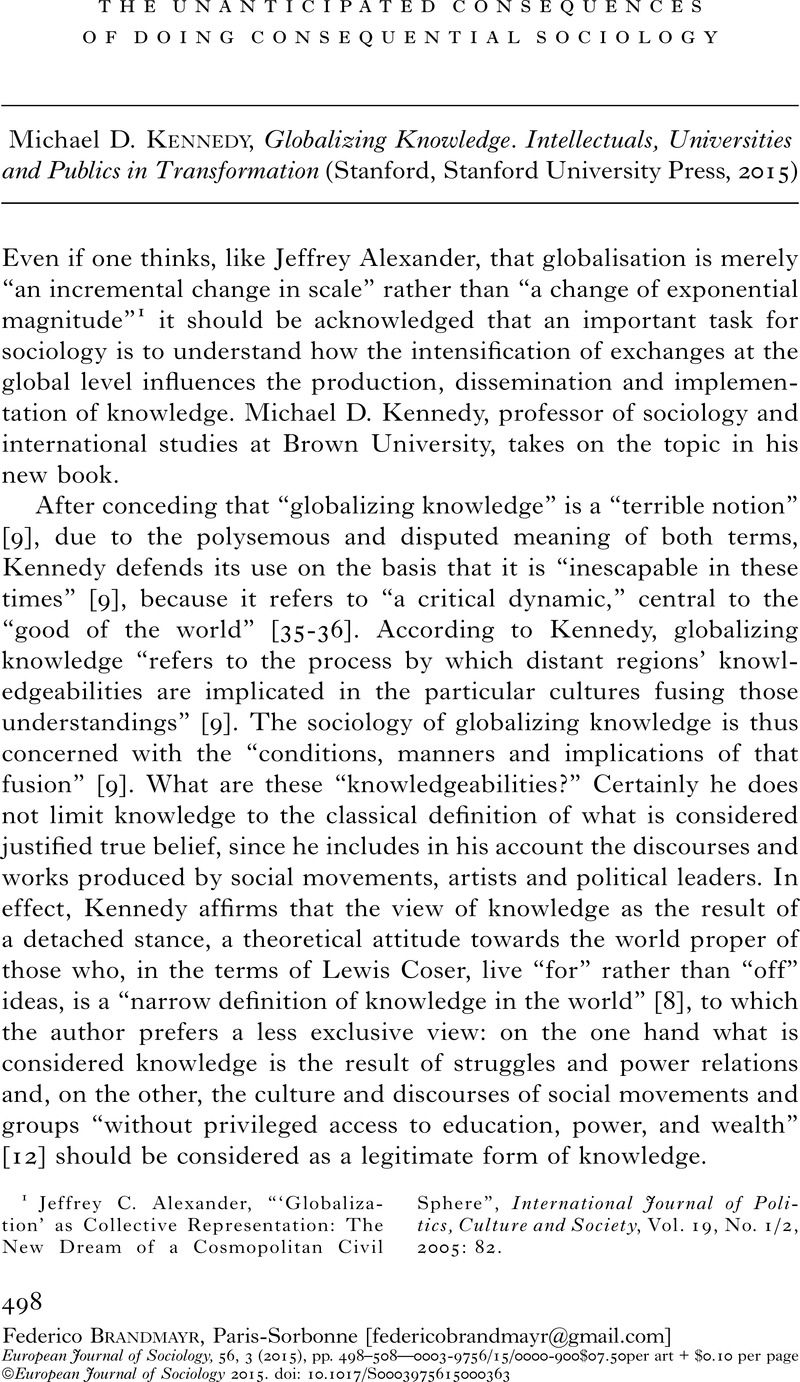No CrossRef data available.
Published online by Cambridge University Press: 30 December 2015

1 Jeffrey C. Alexander, “‘Globalization’ as Collective Representation: The New Dream of a Cosmopolitan Civil Sphere”, International Journal of Politics, Culture and Society, Vol. 19, No. 1/2, 2005: 82.
2 See Charles Camic and Neil Gross, “The New Sociology of Ideas”, in The Blackwell Companion to Sociology, edited by Judith R. Blau, Oxford: Blackwell, 2001: 236-249.
3 Robert K. Merton, “Science and the Social Order”, Philosophy of Science, Vol. 5, No. 3, 1938, p. 334. Needless to say, I am not claiming that Kennedy is naïve in Merton’s sense; I claim that he writes as if his readers could naively confuse the causal explanation of something and the practical evaluation of its unsatisfactory or satisfactory character.
4 Michel Foucault, “Inutile de se soulever?”, Le Monde, 11-12 May 1979, pp. 1-2. My translation.